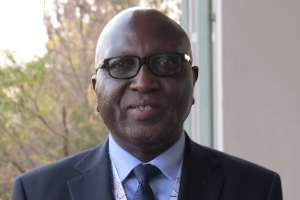Professor Philip Kasaija Apuuli of Makerere University in Uganda has urged African nations to prioritize the proper demarcation of their borders to address long-standing disputes that threaten peace and security on the continent.
Africa has been involved in several border disputes, largely based on what some have described as the artificial and haphazard system of boundaries left by European colonizers after independence, which made no consideration of the various ethnic and cultural divisions of the continent.
Examples include the controversy over the town of Badme between Ethiopia and Eritrea, which led to the war between the two nations from 1998 to 2000.
After South Sudan became independent from Sudan in 2011, the two countries continued to clash over areas like Abyei, which are rich in oil. Somalia and Kenya have also disputed a boundary in the Indian Ocean, believed to contain valuable oil and gas resources.
Speaking at the inaugural African Peace & Security Dialogue in Johannesburg on October 5, 2024, Apuuli emphasized that most African countries still face unresolved border issues, which have persisted for centuries.
“There is no country in Africa whose borders are demarcated,” Apuuli said. He noted that although African leaders have been discussing border demarcation since 2007, little progress has been made, leading to continuous tensions and conflicts.
“We’ve given ourselves since 2007, saying we are going to demarcate the borders because they have been causing us problems. But it's quite amazing. When you look at my region, for example, in East Africa, there's no country in East Africa whose borders are demarcated.”
Apuuli explained the three critical steps in border management: defining, demarcating, and reaffirming borders. "The limitation is definition. So, say the border runs from point A to point B—that's defining. Then I go and translate that definition to the ground, which is getting border pillars and putting them up. Over time, some of these pillars disappear, so I have to reaffirm it,” he elaborated. However, he lamented that Africa's borders have never been properly defined, leading to numerous disputes.
Apuuli provided real-life examples of these challenges, describing his experience working on the border between Uganda and the Democratic Republic of Congo (DRC).
"I found a lady who was selling from a store, part of which was in the DRC, while the other part was in Uganda. I asked her, ‘how do you think about issues of sovereignty?’ She replied, ‘Why have you come here to cause confusion? I've been sitting in this spot for the last so many years. Nobody has ever told me this; I'm not breaking any law,’” Apuuli recounted, highlighting the practical difficulties people face in border communities.
The professor also pointed to ongoing disputes between neighbouring countries such as Rwanda and Burundi, where border lines and rivers have shifted over time, exacerbating tensions. “Rwanda has issues with Burundi, about 15 border districts. Either it's the mouth of a river, or a river has changed course, affecting the territory within,” he said.
In his critique of the concept of the state in Africa, Apuuli made a distinction between "nations" and "states." He explained that very few African countries can be classified as nation-states, where a single ethnic group, language, and religion predominate. “The closest we have to nation-states are three countries: Eswatini, Sudan, and Somalia. These are states comprised practically of one ethnic group speaking the same language and practising the same religion,” he noted.
In contrast, most African states are made up of diverse populations, which presents additional governance challenges. “Most of our entities are actually states, defined as an entity with a population, government, and territory. But recognition has become problematic because it depends on how you approach this: does a state become a state when it says it is, or does it become a state when others say it is?” he asked rhetorically.
Apuuli called for a new approach to peace agreements and governance in Africa, criticizing the over-reliance on standardized templates for conflict resolution. He highlighted his experience with the revitalization process of South Sudan’s peace agreement, which was modelled after a template used in the DRC.
He said: “We adopted the formula of one president and five vice presidents in South Sudan, but someone recently told me that this formula has caused more problems. This is part of the template I’m talking about. Templates are not going to be very helpful; we need to think outside the box.”
He called for deeper integration of communities and an approach that values local dynamics in resolving Africa’s challenges. "Let's integrate communities; let's involve them in peace processes. This thing of ‘thinking outside the box’—for me, there is no box. My brain is not boxed, and we need to have this conversation," Apuuli noted.
The Annual African Peace & Security Dialogue, organized by Thabo Mbeki Foundation, aims to provide a platform for African political & economic leaders, scholars, and policymakers to discuss current peace and security challenges facing the continent, share best practices, and develop practical solutions. The dialogue seeks to deepen understanding and stimulate a robust debate on African-led solutions to peace and security challenges.
BB




















